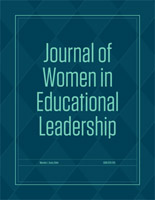Educational Administration, Department of

Journal of Women in Educational Leadership
Date of this Version
7-2010
Document Type
Article
Citation
Journal of Women in Educational Leadership, Vol. 8, No.3-July 2010 ISSN: 1541-6224
Abstract
Professional networking is critical for school leaders. Networking has emerged in the literature as one of the major needs in attracting and retaining quality school leaders. Advice and insights gathered from veteran administrators on how to support the next generation of educational administrators identified networking as a key recommendation for leadership development (Michael & Young, 2006). In general, men have traditionally been more successful than women in establishing and maintaining professional connections. For women leaders, networking challenges are associated with absence of access, issues of gender bias, and challenges with life balance. Women in leadership positions have limited access to networks or are excluded from informal interaction networks (Ibarra, 1993). This creates problems for women leaders because these networks provide a variety of essential resources that are critical for job success and career advancement. These networks also provide benefits such as friendship, mentoring opportunities, and social support (Noel-Batiste, 2009). When women have limited access to interaction networks multiple disadvantages occur, including restricted knowledge of what is going on in their field or organization and limited opportunities to form alliances which, in tum, can be associated to the "glass ceiling" effect experienced by many women leaders (Ibarra, 1993; Noel-Batiste, 2009; O'Leary & Ickovics, 1992).


Comments
Copyright © 2010 Pro>Active Publications. Used by permission.